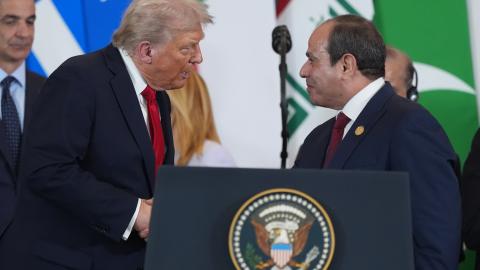On March 15, 2024, President Donald Trump signed a significant peace agreement in Sharm el-Sheik, Egypt, aimed at resolving the ongoing conflict in Gaza. This event followed a two-year period during which twenty hostages were held by Hamas, and their return has brought immense joy to families and communities across Israel.
As the families of the released hostages celebrated their reunions, the focus now shifts toward the recovery process. Dr. Daniel Trotzky from the Sourasky Medical Center emphasized the importance of providing comprehensive medical and emotional support tailored to the needs of each individual. He stated, “In the coming days, they will continue to receive assessments suited to each individual’s condition and wishes.” Dr. Trotzky acknowledged that the journey to recovery for both the returnees and their families would be lengthy, assuring that they would offer care and sensitivity throughout.
Details of the Peace Agreement
During the summit in Egypt, Trump and leaders from Egypt, Turkey, and Qatar formalized the agreement, which aims to end over two years of suffering in the region. The document highlighted a commitment to peace and prosperity, stating, “We, the undersigned, welcome the truly historic commitment and implementation by all parties to the Trump Peace Agreement.”
Trump expressed optimism about the future, declaring, “This is the day that people across the region and around the world have been working, striving, hoping, and praying for.” He emphasized the unexpected nature of this achievement, suggesting that the agreement fulfilled the prayers of millions.
In conjunction with the peace deal, nearly 2,000 Palestinian prisoners were released, some of whom were serving life sentences for involvement in terrorist activities. Critics of the deal have raised concerns that this could lead to future violence, while supporters argue that it is a necessary step towards stability.
Reactions and Ongoing Concerns
Back in Gaza, the situation remains tense, with reports of Hamas executing individuals who oppose their rule or are suspected of collaborating with Israel. The group has released only four of the 28 bodies of victims during the two-year captivity, raising further concerns about human rights in the region.
In an emotional moment captured on a recent episode of The 700 Club, Gordon Robertson spoke with Lishay Miran Lavie, the wife of former hostage Omri Miran, who expressed her enduring hope for her husband’s return. Their reunion, now realized, has brought a wave of relief to their family and community.
As families embrace their loved ones and begin the healing process, the implications of the peace agreement will unfold in the coming months. The international community watches closely, hoping that this historic moment will pave the way for lasting peace in the region.
